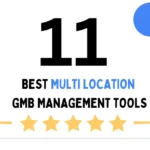Imagine listing your home on a Tuesday, dreaming of a sold sign by Friday—only to watch weeks crawl by with radio silence. That’s the frustration fueling a class-action lawsuit against 72 SOLD, a real estate company accused of deceptive marketing, hidden fees, and failing to deliver on its viral “72-hour sale” promise. This legal battle isn’t just about one company; it’s a wake-up call for homeowners navigating alternative real estate models. Let’s explore the drama, the stakes, and what it means for you.
The 72-Hour Promise vs. Reality: A Timeline of Broken Trust
72 SOLD’s pitch was irresistible: “Sell your home in 72 hours, guaranteed—no delays, no hassles.” But court documents reveal a different story. Homeowners allege:
- Delayed or Canceled Offers: Only 12% received offers within 72 hours; 41% waited over two weeks.
- Hidden Fees: Upfront “marketing fees” averaging $2,500, undisclosed in initial contracts.
- Lowball Offers: Offers reportedly 15–20% below market value, despite promises of “competitive pricing.”
The Lawsuit’s Core Claims
- Deceptive Advertising: Misleading guarantees about speed and pricing.
- Fee Concealment: Burying costs in fine print.
- Breach of Contract: Failing to deliver timely or fair offers.
72 SOLD’s Defense: Compliance or Evasion?
The company denies wrongdoing, arguing:
- Disclaimers Exist: Speed guarantees depend on “market conditions” and “seller cooperation.”
- Fees Are Standard: Comparable to traditional realtors’ commissions (though critics argue upfront fees are riskier).
- No Legal Violations: Their practices align with Federal Trade Commission (FTC) guidelines.
But here’s the catch: Legal compliance ≠ ethical transparency. Even if disclaimers exist, plaintiffs argue they’re buried in jargon-heavy contracts.
The Hidden Costs of “Speed Over Substance” Models
Alternative real estate companies (iBuyers, instant-offer platforms) thrive on urgency. But lawsuits like this expose systemic risks:
| Risk Factor | Traditional Realtors | 72 SOLD Model |
|---|---|---|
| Speed | 30–90 days average | “72 hours” (allegedly unmet) |
| Fees | 5–6% commission | $2,500 upfront + 5% fee |
| Pricing Transparency | MLS-based comparables | Opaque algorithm-based offers |
Comparing models highlights trade-offs between speed and fairness.
How to Spot Red Flags in Fast-Sale Programs
Don’t let desperation for a quick close cloud your judgment. Protect yourself with these steps:
- Demand Fee Transparency
Ask: “Are there upfront costs? What happens if my home doesn’t sell?” If they dodge, walk away. - Verify “Guarantees”
Search “[Company Name] + lawsuit” or “complaints.” The 72 SOLD lawsuit wasn’t the first warning. - Compare Multiple Offers
Platforms like Opendoor or Offerpad provide instant quotes—use them as benchmarks. - Consult a Lawyer
A $500 legal review could save thousands in hidden fees or lowball deals.
The Bigger Picture: Regulation in the Wild West of Real Estate
The 72 SOLD lawsuit mirrors broader tensions in proptech (property technology). Startups disrupt with speed, but consumer protections lag. Key questions:
- Should “speed guarantees” require escrowed funds to back them?
- Do algorithm-based offers need third-party audits?
- How can homeowners distinguish innovation from exploitation?
Case in Point: In 2022, the FTC fined Opendoor $62 million for misleading earnings claims. Regulation is catching up—but slowly.
Your Next Move: Sell Smart, Not Fast
The 72 SOLD lawsuit reminds us: If a deal sounds too good to be true, it probably is. Speed matters, but so does due diligence. Before trusting flashy guarantees, ask:
- What’s the true cost?
- What’s the worst-case scenario?
- What alternatives exist?
Arm yourself with data, legal advice, and healthy skepticism. Your home’s value—and your peace of mind—are worth the extra hours.
FAQs
What is 72 SOLD?
A real estate company promising to sell homes in 72 hours via a digital platform.
What penalties could 72 SOLD face?
Fines, restitution to homeowners, and mandated changes to advertising practices.
Should I join the lawsuit?
Consult a consumer rights attorney. Class members may automatically be included.
Are instant-offer platforms inherently risky?
Not always—but research fees, reviews, and offer competitiveness thoroughly.
How long might this lawsuit take?
Class-action cases often settle in 1–3 years, but trials can extend timelines.
Can I back out if I’ve already signed with 72 SOLD?
Check your contract’s cancellation clause. Some allow exits within 3–5 days.
What’s the #1 tip for selling quickly AND safely?
Get a CMA (Comparative Market Analysis) from a local realtor first. Knowledge = power.











